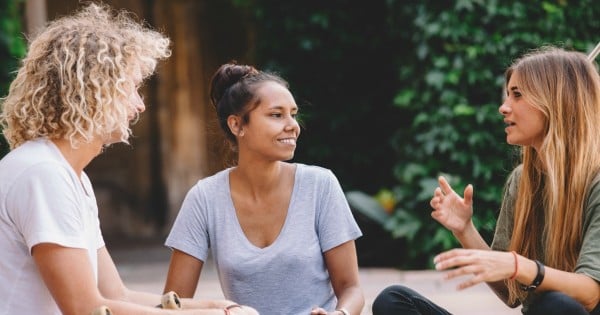
When I was 18 I was often angry and often wrong. I’m pleased to say I’m less angry now, though still very, very often wrong.
Unfortunately, that mixture of anger and incorrectness led to something I’m not proud of. It’s not easy to talk about things we are ashamed of, but there’s one belief I used to hold that I am now ashamed of, and I need to discuss it.
One thing I used to be very angry about was affirmative action, especially around indigenous Australians. When I was 18 I railed against preferential selection into medical schools for indigenous students and what I saw as a disproportionate focus on indigenous issues in the curriculum.
Last weekend, I heard Brooke Boney (of SBS TV fame) talk about the health of Aboriginal Australians at the AMA National Conference. It was one of the greatest conference sessions I’ve ever been to, and it made me very uncomfortable.
Watch Charlie Pickering discuss the racism towards indigenous AFL star, Adam Goodes, last year. (Post continues after video…)



Top Comments
Interesting article, I don't know if it is racist though to have the thoughts you used to have. As some have said perhaps it was uninformed. But in any case Affirmative Action, like just about every policy in the world has good and bad points. For instance I would think that some smart people are being bypassed by an indigenous person who really shouldn't be there, but on the other hand as you have noted most indigenous people have not been born with the silver spoon in their mouth that some white people have had so therefore they need that extra help up the ladder.
I think it's a very complicated situation. I myself don't have a strong opinion on it because I have witnessed it first hand, so therefore don't know the positive or negative ramifications from it.
Unless there was deeper reasons behind your thoughts you weren't being racist.